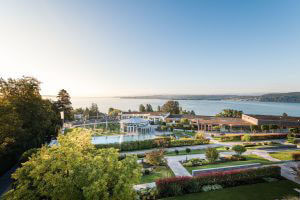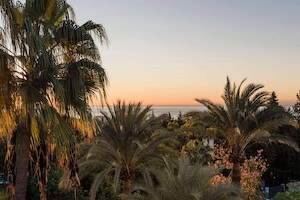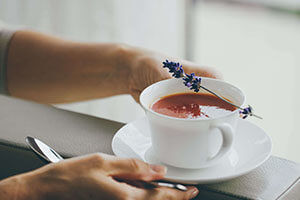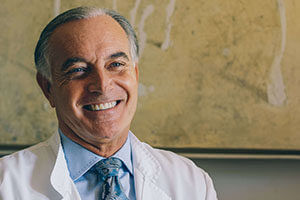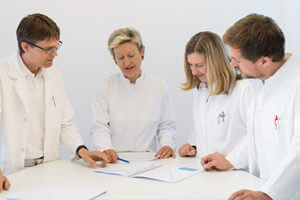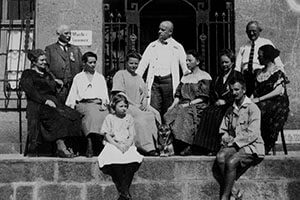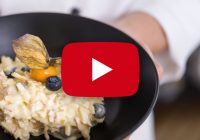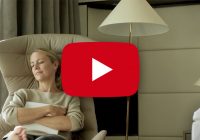After 35 years of managing the clinic in Marbella, Jutta and Claus Rohrer have decided to retire from day-to-day business. Katharina Rohrer-Zaiser and Victor Wilhelmi have joined the management team as members of the fourth generation of the Buchinger Wilhelmi family. The two generations met to talk about the past and the future.
Victor: How long have you two been working in the company?
Jutta and Claus: For 35 years. We arrived here in spring 1982 and started working in Marbella..
Victor: How many employees did you have back then?
Claus: Around 60. We now have about 190 employees. The workforce has tripled. Unlike the occupancy of patients, which has “only” doubled.
Victor: Did you experience fasting for the first time in the clinic?
Claus: No, I fasted for the first time before I met Jutta, funnily enough. The story goes like this: A girlfriend at the time was given this book in 1973, “Reborn through Fasting” by Lützner – a bestseller at the time.
She tried it out and to show her that I could do it too, I fasted for the first time back in 1973! But my first fast combined with a stay in a clinic was in Überlingen.
Jutta: I fasted for the first time in Überlingen after our first child (Katharina) was born, when I was around 29 years old.
Katharina: How did you decide to come here?
Jutta: It was a quick decision. My parents (Helmut and Maria) called us and asked if we would be interested in coming to Marbella. So we sat down together, made a list of the pros and cons, and in less than a week we had made our decision.
Back then, we did things by gut instinct – that’s really how the clinic here was founded!
Claus: The idea of joining the company, of making a contribution and managing the clinic – in conjunction with the many other wonderful advantages that life here brings – was really exciting and inspiring.
Victor: What was it like to work with Grandma Maria? It must have been quite a dynamic atmosphere: How did your work look like back then?
Jutta: Well, Maria set the general direction.
Claus: Helmut Wilhelmi was very much involved in the organization. They very much dominated key decisions and investments. But the good thing was that I earned their confidence very quickly, including my mother-in-law’s, and was given free rein relatively early on. And because I had breakfast with her every morning, we talked a lot, I learned a lot from her about fasting and looking after the staff.
Katharina: What has changed most in the clinic, thinking back?
Jutta: The fasting boom really started in the 1990s, and the clinic was very full. There was a waiting list more than half a year long. That was unbelievable!
Claus: And back then, we had as many Spanish as German guests.
Jutta: Yes, 40% of guests were Spanish, 40% were German and the remaining 20% were from other countries. Guests from France and other regions around the world only started coming later on.
Claus: For me, the biggest difference is that our work is much more professional now than it was then. Apart from that, we have grown – in every respect: We have more rooms, more employees, more patients, more treatments. In other words, we have grown constantly.
Victor: Victor: Were there moments of crisis? When did you really feel you were put to the test?
Jutta: The Gulf War in the 1990s was hard! I did peace meditation with the patients back then.
Claus: The business had some crucial moments in the 1990s. In the early 90s we realised that despite being well booked, the figures did not look particularly great and the business was not that successful.
Katharina: What are the highlights, when you look back?
Jutta: Our 30th anniversary was lovely! It was sooo creative! We performed “Cumpleaños Feliz” (happy birthday) as a tango, as a Hungarian czardas, as a minuet, as a jazz song, etc. I drove to Malaga with our dance teacher Miguel to hire costumes and we danced and played the different genres and dances wearing the respective costumes. It was wonderful!! A fantastic celebration with 300 guests from Marbella and the surrounding area.
Claus: I still find it unbelievable that our relatively small clinic attracts people from all over the world. If you think about the different religions and cultures, the different generations: Our clinic is a place where people coexist in harmony. I find it really positive that something like that is possible in today’s world. Buchinger Wilhelmi manages to create a peaceful world here, where everyone is happy.
Jutta: You really notice that at Christmas. Maybe it has something to do with fasting, too!
Claus: Really, what I find best is the opportunity to meet different people.
A great moment for me was meeting Max Frisch for the first time and simply chatting with him. He wrote a dedication in the book he gave me when he left and thanked me. Professionally speaking, my highlights were of course our investments in the clinic in 2010/2012, when we built Villa Maria: I find it extremely satisfying that this has been such a success – especially towards the end of my career!
Victor: Do you think that patients have changed? Are their profiles and needs different nowadays?
Jutta: I think that people who come to us today need much more attention. Fasting still has the same effect as ever, of course.
But I think that people today are much needier. They need more peace and calm, and to find themselves more.
I think that will become one of the main challenges in future. Because our world as it now is makes such unbelievable demands on people – especially mental demands. Our guests now tend to be less ill physically, but they need more spiritual support.
Claus: But I also see that they are generally better informed about their health than they used to be. The problem is putting this into practice.
Victor: We are a family-run business. How important do you think this is for our employees?
Jutta: We were always a big family. Your grandmother had a strong influence on that. She always had close contact with all of her staff. She knew who did what, how they were doing, and knew their family situations, etc. I think that we have managed to retain this personal aspect – despite our size now.
Claus: The fact that we are a family-run business is fundamental to our success. It also means that we can pass on the spirit of the business, especially now in the fourth generation, as well as the values we represent.
Victor: I think so too. We have known the company since we were small children: me in Überlingen and Katharina mainly here in Marbella. I can also remember that everyone in the clinic knew all about us ever since we were small. And I always felt very close to the staff.
Katharina: Your family home is a three minutes’ walk from the clinic in Überlingen and looks onto it. And I grew up with Maria Buchinger in Villa Mariposa, just a minute away from the clinic. That means we were also physically present throughout our childhood. Whenever I introduce myself to patients now, they say: “Ah, I knew you when you were a child. You always came to the Flamenco evenings back then!”
Claus: What influenced your decision to come here to Marbella?
Katharina: I am the eldest of the fourth generation. I lived in Stuttgart and in Mannheim for a long time and worked in other companies. Then at some point, Raimund Wilhelmi offered me a position in the clinic in Überlingen. I had already noticed that my work in other companies was not as fulfilling and had started to look around for other options. And so I decided to try my luck in the family business. What I noticed above all was that I was much more motivated and enjoyed working much more! When my child was born, I quickly realised I wanted to go back to my roots, to Marbella, where I come from and where my parents live. In family strategy meetings we talked about the future of the company, and we learned that you want to gradually take a back seat. So I decided to grasp the opportunity and tell you that I was interested in coming to Marbella. Timewise, it was a stroke of luck for me!
Victor: I went to boarding school relatively near to our home in Überlingen. At the weekends, our house was always packed with friends from school: That was when I first noticed that I enjoy being a host. After that, I studied the hotel trade in Switzerland and at some point, after working on various projects, I noticed that I was ready to contribute to the business and add some value. At the family strategy meetings, when things began to get more specific, I decided at some point to take over the business in Marbella together with Katharina. We in the fourth generation get on well. The idea appealed to me more and more. Now we’ve been here 1½ years, and I must say, I have not regretted the decision one bit. We have been very well received by all our guests and employees.
Claus: How much of the clinic’s origins do you think still remain?
Katharina: I think they are still present to a large extent. We had such a close relationship with Maria Buchinger, who learned the origins from the beginning together with her father, Otto Buchinger. We knew her when she was still very active, not only as our grandmother, but also as senior director of the clinic. The origins – what is important, what fasting can do, why it is so important to look after each patient individually – I think we learned all that from her. When we talk to patients now they tell us: “I can feel it. I can feel Maria in some way. Everything still has her signature. Please keep it that way.” And we are absolutely in agreement that we should do all we can to retain this, because otherwise we would simply no longer be Buchinger Wilhelmi. We will guard it like a treasure!
Victor: That’s a very important point that you mention: We are often reminded by guests, who have been coming here for a long time, how the clinic used to be, and what it is founded on. You might compare it with a tree, where the trunk – the foundation, the method, the values, the bond – remains the same, but the branches change. You have to change with the times. As Jutta said, the profile and demands of guests are changing. Still, it is important to retain the things that have stood the test of time, as long as they make sense. Maria’s motto was always: “If it is conducive to quality of life and health, then why not?”
Claus: It is a matter of balancing tradition and our success so far on the one hand and new challenges, new markets, and your own interests on the other. Do you have an idea how you will combine these two areas?
Victor: I think that Buchinger Wilhelmi is a company with a very, very good foundation. I think what we have to do is to consolidate and further develop our method. But above all, we have to focus on our guests. If we pay as much attention to our guests as you do, we will find out from them what they need and how we can meet their demands.
Katharina: An evolution!
Jutta: Our method is still very contemporary today, maybe even more than ever. I don’t think it will be difficult to keep our origins and yet evolve at the same time.
Katharina: I would like you to explain the story with the candle again: Why did you give us each a candle 1½ years ago?
Jutta: It is the story about a man whose company was not doing well. He went to a wise man and asked: “What should I do? My company is not doing well.” The wise man gave him a candle and said: “You must light this candle and take it to every single room in your company every day.” So he did that and in next to no time, his company began to thrive. The idea is to be present, to look everywhere and keep your eyes open.
Victor: Will we still see you in the clinic?
Jutta: Every now and again.
Claus: We’ll be there of course when you need us, to support you in certain things.
And of course there are patients we know very well and also want to see again, or special occasions we will attend.
Victor: We would be happy to see you.
Katharina: Perhaps we can have traditional breakfasts again like we did with Maria Buchinger?!

